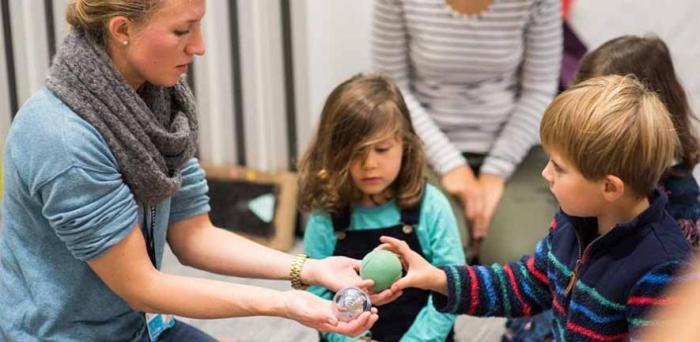Teaching younger children through ‘guided’ play can support key aspects of their learning and development at least as well, and sometimes better, than traditional, direct instruction, according to a new analysis.
The research, by academics at the University of Cambridge gathered and assessed data from numerous, widespread studies and information sources, which collectively documented guided play’s impact on the learning of around 3,800 children aged three to eight. Guided play broadly refers to playful educational activities which, although gently steered by an adult, give children the freedom to explore a learning goal in their own way.
Overall, the study found that this playful approach to learning can be just as effective as more traditional, teacher-led methods in developing key skills: including literacy, numeracy, social skills and essential thinking skills known as executive functions. The findings also suggest that children may master some skills – notably in maths – more effectively through guided play than other methods.
The relative merits of play-based learning compared with more formal styles of instruction is a long-standing debate in education, but most of that discussion has focused on ‘free’ open-ended play.
The new study is the first systematic attempt to examine the effects of guided play specifically, which is distinctive because it uses games or playful techniques to steer children towards specific learning goals, with support from a teacher or another adult using open-ended questions and prompts.
This may, for example, involve creating imagination-based games which require children to read, write or use maths; or incorporating simple early learning skills – such as counting – into play. Such methods are common in pre-school education, but are used less in primary teaching – a deficit which has been criticised by some researchers.
The analysis was carried out by academics from the Play in Education, Development and Learning (PEDAL) Centre at the Faculty of Education, University of Cambridge.
Image: Researchers and children at the PEDAL Centre during the Cambridge Festival
Credit: Faculty of Education
Reproduced courtesy of the University of Cambridge
